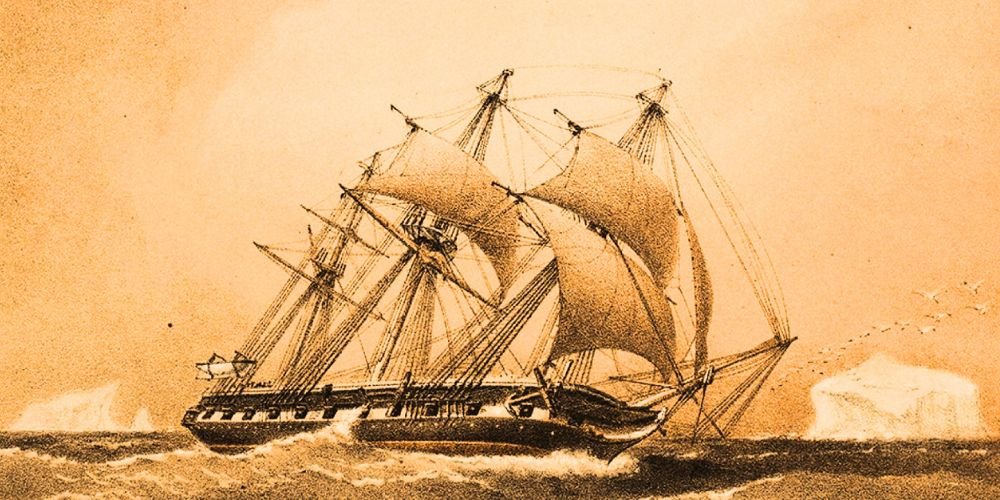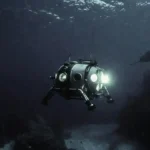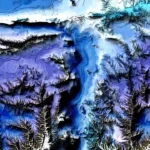In the vast expanse of the world’s oceans lie uncharted territories and mysteries waiting to be unraveled. Oceanographic expeditions represent a journey of discovery and scientific inquiry, offering insights into the complex dynamics of marine ecosystems, geological formations, and climate patterns. In this article, we embark on a voyage to explore the significance of oceanographic expeditions, uncovering the methodologies, discoveries, and the profound impact these missions have on our understanding of the oceans.
Understanding Oceanographic Expeditions
Oceanographic expeditions are scientific endeavors to study the oceans’ physical, chemical, biological, and geological characteristics. To collect data and samples from diverse marine environments, these expeditions employ various research methods, including ship-based surveys, underwater exploration, and remote sensing technologies. By analyzing these findings, researchers gain valuable insights into oceanographic processes, biodiversity, and the interconnectedness of marine ecosystems on a global scale.
Types of Oceanographic Expeditions
Oceanographic expeditions can be categorized into several types based on their objectives and research focus:
- Exploratory Expeditions: These missions aim to discover and document unexplored ocean regions, such as deep-sea trenches, underwater volcanoes, and hydrothermal vent systems. Exploratory expeditions often utilize advanced submersibles and remotely operated vehicles (ROVs) to investigate these remote and inaccessible areas in-depth.
- Research Cruises: These are conducted aboard vessels equipped with state-of-the-art scientific instruments and laboratories. These expeditions focus on collecting data on ocean currents, water chemistry, marine biodiversity, and ecosystem dynamics. Research cruises are crucial in advancing our understanding of oceanographic phenomena and informing environmental management and policy decisions.
- Long-Term Monitoring Programs: Long-term monitoring programs involve continuous data collection over extended periods to track changes in oceanographic parameters, such as sea surface temperature, salinity, and pH levels. These programs provide valuable insights into long-term trends, climate variability, and the impacts of anthropogenic activities on marine ecosystems.
Methodologies and Technologies
Oceanographic expeditions employ various methodologies and technologies to research and explore the marine environment.
Ship-Based Surveys
Ship-based surveys are a cornerstone of oceanographic research, allowing scientists to collect samples and data from different ocean depths and locations. Research vessels equipped with specialized instruments, such as CTD (Conductivity, Temperature, Depth) profilers, sediment cores, and plankton nets, enable researchers to study the physical, chemical, and biological parameters of seawater and marine organisms.
Underwater Exploration
Underwater exploration involves using manned and unmanned submersibles, ROVs, and autonomous underwater vehicles (AUVs) to investigate deep-sea habitats, topography, and marine life. These vehicles have high-resolution cameras, sensors, and sampling tools, enabling researchers to study inaccessible marine environments and document previously unknown species and phenomena.
Remote Sensing
Remote sensing technologies, such as satellite imagery and oceanographic buoys, provide valuable insights into large-scale oceanographic processes and phenomena. Satellite sensors measure sea surface temperature, ocean color, and sea level changes, allowing scientists to monitor ocean circulation patterns, identify marine habitats, and detect environmental changes over time.
Discoveries and Contributions
Oceanographic expeditions have led to numerous groundbreaking discoveries and contributions to our understanding of the oceans and their role in shaping the Earth’s climate and ecosystems.
Deep-Sea Exploration
Exploratory expeditions to the deep sea have unveiled a wealth of biodiversity, including new species of marine organisms adapted to extreme conditions such as high pressure, darkness, and cold temperatures. Discoveries of hydrothermal vent communities, deep-sea corals, and bioluminescent organisms have revolutionized our understanding of deep-sea ecosystems and their ecological significance.
Climate Research
Oceanographic expeditions play a crucial role in climate research by monitoring oceanic parameters such as sea surface temperature, salinity, and carbon dioxide levels. These measurements provide essential data for climate models, helping scientists understand the role of the oceans in regulating global climate patterns, heat distribution, and the carbon cycle.
Marine Conservation
Oceanographic expeditions contribute to marine conservation efforts by providing scientific evidence to support the designation of marine protected areas, conservation policies, and sustainable management practices. Research findings on marine biodiversity, habitat connectivity, and ecosystem health inform conservation strategies to preserve vulnerable marine ecosystems and species.
Challenges and Future Directions
Despite their importance, oceanographic expeditions face various challenges, including funding constraints, logistical complexities, and environmental risks.
Funding and Resources
Oceanographic expeditions require substantial funding and resources to support research vessel operations, equipment maintenance, and scientific personnel. Securing long-term funding and international collaboration is essential for sustaining oceanographic research efforts and addressing global challenges such as climate change and marine conservation.
Technological Advancements
Advancements in technology, such as the development of autonomous underwater vehicles, satellite imaging systems, and advanced sensors, hold promise for enhancing the capabilities and efficiency of oceanographic expeditions. Continued investment in research and innovation is needed to deploy cutting-edge technologies and address emerging research questions in oceanography.
Environmental Impact
Oceanographic expeditions must minimize their environmental impact to avoid disrupting marine ecosystems and habitats. Sustainable practices, such as reducing waste generation, minimizing fuel consumption, and adhering to environmental regulations, are essential for ensuring responsible conduct during expeditions.
Conclusion
Oceanographic expeditions represent a voyage of discovery and enlightenment, offering glimpses into the hidden realms of the ocean and expanding our knowledge of the Earth’s largest and most dynamic ecosystem. By employing advanced technologies, fostering international collaboration, and embracing sustainable practices, we can continue to unlock the oceans’ mysteries and address pressing environmental challenges facing our planet. As we navigate the ocean’s depths, the oceanographic exploration journey is guided by the spirit of curiosity, discovery, and the collective quest for a deeper understanding of our marine world.





